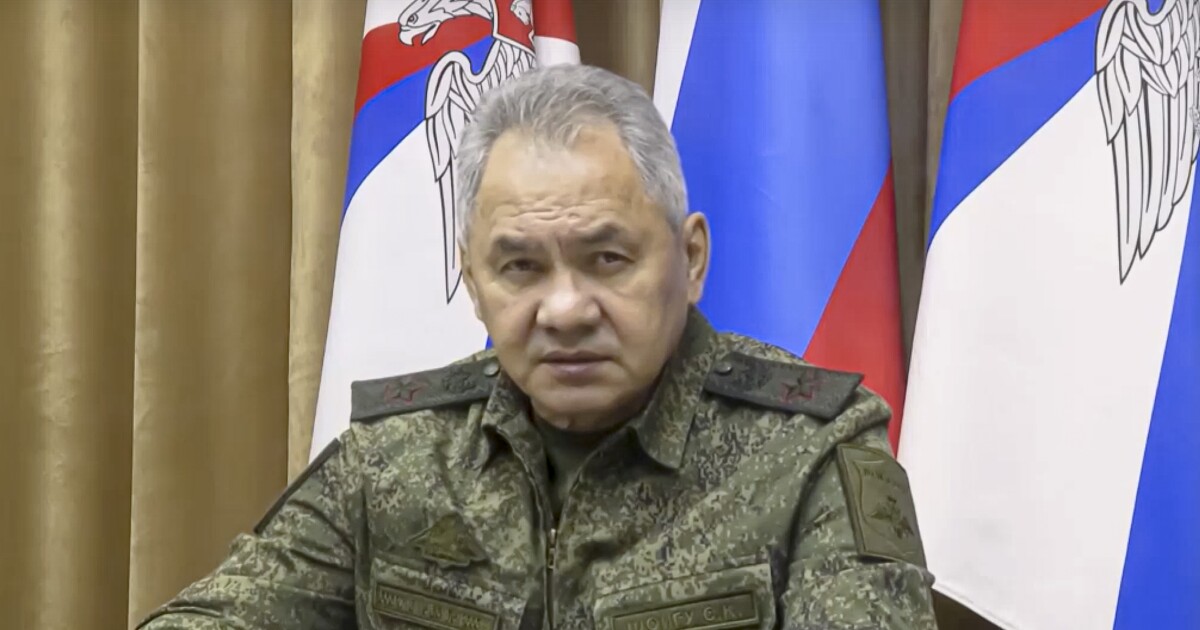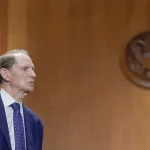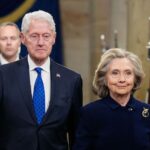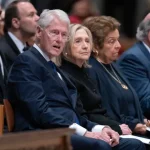

Russia will withdraw beleaguered troops from a key city in Ukraine to avoid a catastrophic loss, according to Russian defense officials in Moscow, but Ukrainian and Western officials are wary about celebrating too soon.
“It remains to be seen, and it remains to be verified. … It may actually be something else,” a senior European official said. “Certainly, it’s a development that is not good for Russia, but let’s see what exactly it means for the rest of the war as well.”
Russian Defense Minister Sergey Shoigu ordered the occupying force to leave Kherson, a major city, following a televised update from a general who acknowledged that his troops have been pinned “in a limited area on the right bank” of the Dnieper River by a Ukrainian counteroffensive. Still, even European officials who have been expecting an evacuation suspect that Moscow has an ulterior motive for making the announcement.
“It’s [about] confusing the West, trying to confuse Ukrainians — they are not confusable — but give signals to the West to try to get some negotiations [on a ceasefire] fixing the lines” in a way that would allow Russian President Vladimir Putin to retain control of at least some Ukrainian territory, a second senior European official said. “The Russians are not withdrawing without a real need — that’s clear. … They try to get Ukrainians trapped [into negotiations]. They try to show the West that ‘hey, despite that we are mass murderers, we are sensible, you see?’”
PENTAGON LAYS OUT EXPECTATIONS FOR WINTER MONTHS IN UKRAINE
Russia’s loss of Kherson has been long in the making, as the Ukrainian forces managed to isolate the Russian occupation force from their supply lines, leaving them exposed to Ukrainian artillery and other attacks with little hope of reinforcement.
“They were going to lose all those guys … pinned in between the river and the front,” a senior congressional Republican aide following military developments in Ukraine told the Washington Examiner. “They were going to be attrited slowly over the course of the next couple weeks. It was going to be a steady pounding that they weren’t going to be able to take. And the Russian General Staff was faced with a decision of either: [first,] pull those folks back and allow them to stay in the fight, or [second], send them home in body bags.”
Still, the decision to announce it by staging a conversation between Shoigu and a chagrined general making a difficult recommendation struck Western eyes as suspicious.
“Very unusual,” the first senior European official said. “When I was at school, we staged school plays, and kids played some roles. And it was just as bad theater as we made 20 or 30 years ago.”
Shoigu’s team portrayed the withdrawal order as a sign of their determination to minimize Russian casualties, a display offered following days of allegations circulating that commanders refer to troops as “meat” and have taken heavy casualties in imprudent assaults further north.
“I understand that this is a very uneasy decision,” Russian Gen. Sergey Sorovikin said in the broadcast video. “At the same time, we will preserve, which is the most important thing, the lives of our servicemen and, as a whole, the combat capability of the group of forces, which is inexpedient to be kept in a limited area on the right bank.”
Still, Ukrainian President Volodymyr Zelensky seemed to question their own purported success.
“Actions speak louder than words,” Zelensky adviser Mikhail Podolyak tweeted. “We see no signs that Russia is leaving Kherson without a fight. A part of the ru-group is preserved in the city, and additional reserves are charged to the region. [Ukraine] is liberating territories based on intelligence data, not staged TV statements.”
That wariness could be justified either by military or diplomatic threats from Moscow, according to officials who share Podolyak’s skepticism of Shoigu’s statements.
“Russia had to do it because the reality hit them: Ukraine is better prepared for a fight in Kherson, and Russian losses might be unsustainable or too risky due to potential high losses,” another European official said. “Also, pulling out of Kherson might be a trap for Ukrainian army and those people who stayed in Kherson, [who, by virtue of their choice to stay,] are considered pro-Ukrainian.”
And then there’s the diplomatic component, as Moscow juxtaposed the withdrawal order with a new statement from Russian Foreign Minister Sergey Lavrov’s team.
“We are still open to negotiations,” Russian Foreign Ministry spokeswoman Maria Zakharova said, per state media. “We have never refused to have them. We are ready to negotiate, of course, taking into account the realities that are emerging at the moment.”
Russian officials have insisted that any negotiations must involve Ukraine surrendering territory to Moscow, including territory that Russian forces have failed to occupy. Putin announced the annexation of Kherson and three other Ukrainian territories this fall amid a humiliating Ukrainian counteroffensive, and his allies have called for Zelensky’s overthrow.
“The goal of our future actions, in my opinion, should be the complete dismantling of Ukraine’s political regime,” Russian Security Council Deputy Chairman Dmitry Medvedev said last month.
Still, Zakharova’s comments followed a series of reports stoking speculation that President Joe Biden’s team is trying to set the stage for a ceasefire. White House national security adviser Jake Sullivan made a surprise visit to Kyiv last week, followed by Russian state media promoting an Italian media report that “the US and NATO think that launching peace talks on Ukraine would be possible if Kyiv takes back Kherson,” as TASS summarized.
“There’s not a willing partner on the [Russian] side to actually sit down with, so it’s not going to go anywhere,” the senior Republican aide said. “I think the Russians know that the strategy the White House has to kind of play for a tie and not actually give the Ukrainians what they need to finish the job and push the Russians out of Ukraine.”
Zelensky has said he would agree to “a fair and just peace” that restores the central government’s control over Ukrainian territory and measures to ensure that Russia does not rearm and attack again.
“A deal with Putin is a one-way ticket to a world where international law is no longer valid, where law is determined by force, and force is nuclear weapons,” Podolyak said Tuesday in a separate interview with Italian media. “And why pay such a price if Putin does not give up the goal of destroying us? The ceasefire for Russia is a tactical pause for reinforcement. Is it worth making such a gift to Moscow?”
Podolyak’s efforts to make that argument in Western press is consistent with the view that Moscow is trying to induce Western allies to put pressure on Ukraine.
CLICK HERE TO READ MORE FROM THE WASHINGTON EXAMINER
“I’m sure that they … are trying to use this also as the tool to create, at least — if not the cracks between the between the Western allies of Ukraine, then at least to raise some confusion,” the first senior European official said while reflecting on Shoigu’s highly publicized withdrawal order. “That would be countries asking, ‘OK, isn’t this a place where we should actually start talking to Russia? Isn’t this a place where we should acknowledge that Ukraine has [regained a lot]?’ … It’s certainly a signal of something.”







